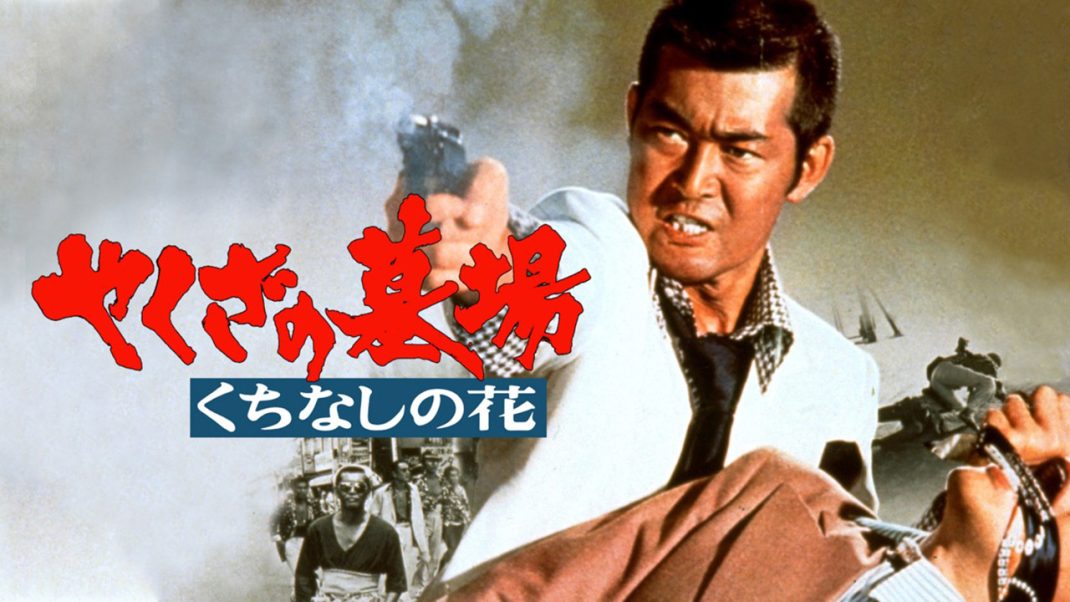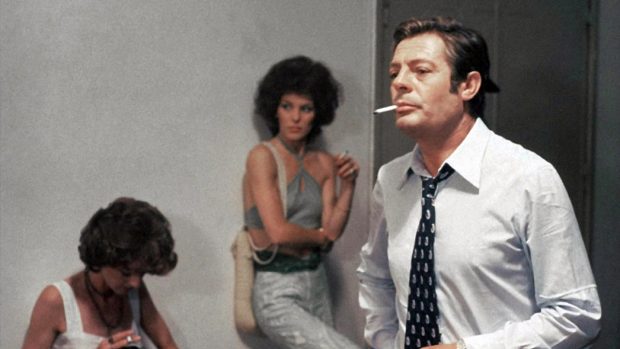In a world where Netflix is up-charging for sharing your account and HBO Max can’t quite figure itself out, there’s never been a better time to be a physical media collector. You can forget about which app to pay twelve bucks a month to so you can watch the latest season of Kitchen Nightmares and simply crack open a plastic case, try not to get your fingerprints all over the disc, and watch anything from the latest studio superhero mega-epic in stunning 4K HDR to a home made horror film starring the director’s uncle wearing a cheap Bigfoot costume also in stunning 4K HDR. If your collection is big enough you can even suffer under paralysis induced by the paradox of choice as you look over your shelves and reminisce about hours spent languishing inside a Hollywood Video trying to pick out a tape for family movie night.
With the resurgence of home media as a collector’s market, more and more companies are coming for a piece of the cake the esteemed Criterion Collection once hogged all to itself. The latest company to debut in the US market is UK based Radiance Films. Run by former Arrow Video executive Francesco Simeoni, Radiance is attempting to carve out its own corner of the world cinema and cult landscape. The company seems intent on hitting the ground running, debuting this year with an annual subscriber package that promises a copy of every release. That being said, their US distributor sent us a handful of their inaugural releases. Here are our thoughts so far.
The Sunday Woman (Italy, 1975. Dir. Luigi Comencini)
The Plot: Based on the novel of the same name, The Sunday Woman tells the story of a police commissioner and his investigations into a series of murders connected to Turin’s elite.
- Best Bonus Feature: The supplements on this disc include four interviews of varying length. The stand-out is a 1976 French television interview with actor Jean-Louis Trintignant. While it may be standard marketing fluff, there’s something undeniably charming about watching archival TV content.
- Recommended? The Sunday Woman may be the weaker of the first lot of movies sent to us by Radiance. If you’re into gialli this isn’t going to be anything you haven’t seen before. If you’re unfamiliar with the genre, there are far better entry points.
Red Sun (Germany, 1970. Dir. Rudolf Thome)
The Plot: A light-on-plot feminist fairy-tale about a group of women who kill the men in their lives after five days.
- Best Bonus Feature: From Oberhausen to the Fall of the Wall is a nine-part, hour-long documentary about the birth of the German New Wave. In this piece, British film scholar Margaret Deriaz teaches a masterclass on mid-20th-century German film history-making for one of the most comprehensive extras found on any of the releases Radiance has provided to us thus far.
- Recommended? With commentary by director Rudolf Thome and and hour and a half of newly produced retrospectives, Red Sun stands head and shoulders above Radiance’s other early releases. A strong recommendation, especially for fans of Thome’s contemporaries such as Wim Wenders or Rainer Werner Fassbinder.
Yakuza Graveyard (Japan, 1976. Dir. Kinji Fukusaku)
The Plot: A stylish and bloody 1970s Japanese crime thriller about what happens when a cop crosses the line and enlists the very outlaws he’s spent his career fighting to clean up the streets on his behalf.
- Best Bonus Feature: The Rage and the Passion, a 12-minute visual essay outlining the partnerships between director Kinji Fukasaku and actress Meiko Kaji. If you’re barely scratching the surface of Yakuza films, this piece will point you toward a number of films to check out next (most of which are available on Blu-ray by Arrow Video).
- Recommended? Yakuza Graveyard was just one in a series of gangster movies directed by Kinji Fukasaku in the 1970s. After a run of success with the Battles Without Honor and Humanity, Cops vs Thugs, and Graveyard of Honor, this film finds Fukasaku at the top of his game. If you’re a fan of the genre, this is definitely worth picking up.
Cosa Nostra: Franco Nero in Three Mafia Tales (Italy 1968-1974. Dir. Damiano Damiani)
The Plot: Costa Nostra collects three crime dramas from director Damiano Damiani. The first, Day of the Owl, stars Franco Nero as a police captain who takes on a murder case that leads to his uncovering of a web of corruption spun by the mob. The next film, The Case is Closed: Forget It puts Nero on the other side of the law as we follow him into prison over a misdemeanor conviction. Finally in How to Kill a Judge, Nero is a director who finds shocking similarities between his latest film and the murder of a local judge.
- Best Bonus Feature: The easy choice would be the interviews with Franco Nero featured on each disc of this set. Nero has an expansive career spanning close to sixty years at this point with no signs of slowing down – he most recently portrayed the Pope in this year’s Russel Crowe horror flick The Pope’s Exorcist. Nero is an engaging speaker and speaks candidly to both the highlights and struggles of each production. That being said, the standout is the 35-minute video essay Italy’s Cinematic Civil Conscience. In this piece, film critic Rachael Nisbet takes us through the history of Damiani’s career, from his beginnings in the world of comic books through to his partnerships with Franco Nero and his focus on political issues of 1970’s Italy – a well rounded introduction to a prolific filmmaker.
- Recommended? If you’re into early 1970s crime movies, yes. These films can be a bit slow to pick up, mostly due to the style and pace of the time, but if you have any interest in the genre the set is worth a look.
Radiance Films has come out of the gate with a selection of decent-quality releases. Even though the discs can be light on features, especially in the face of Criterion’s exhaustive hauls of their own in-house material and supplements produced for previous releases, Radiance has put forth a collection of world cinema with rich color and masterful transfers. While several films they’ve released can be overshadowed by releases on other labels, Radiance has proven overseas that they have the reach to give the boutique treatment to newer contemporary films such as She Dies Tomorrow and long awaited films that somehow nobody else has managed to release thus far such as Welcome to the Dollhouse.
Each boutique label has its own vibe. Criterion is the standard bearer for the art house crowd. Arrow has mostly made their name with the more well-known side of cult cinema. Vinegar Syndrome is your place for video store trash and Severin is doing whatever madness Severin is doing. Radiance has made a pretty good showing so far with a slate of no-frills world cinema releases. While the films they’ve put out so far may not be the best examples of any of their respective genres – Radiance is a new company that doesn’t have the same licensing reach as the other guys yet – their UK slate has contemporary cult hits like She Dies Tomorrow and Welcome to the Dollhouse. If those two titles are any indication of what Radiance has planned stateside it bodes well for where the company is going. Until then, keep your region-free player handy.






